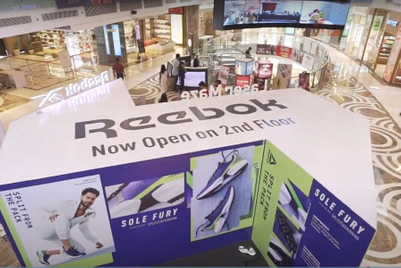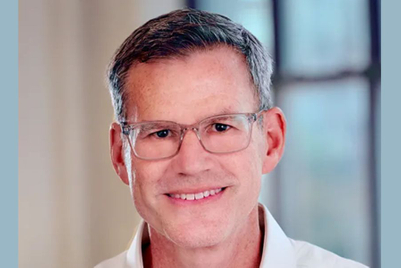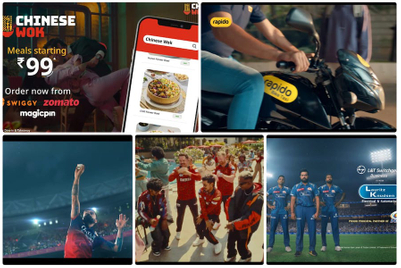.jpg&h=570&w=855&q=100&v=20250320&c=1)
When he began his career as an equity trader in Mumbai in the early 2000s, Shalin Mehta often met clients at a chai ki tapri (local tea shop) near the Bombay Stock Exchange. “It was where most of us traders would gather to exchange tips on stock movements and identify the day’s best bets,” he recalled.
Today, such meetings have shifted to Starbucks or Third Wave Coffee outlets. The modest glass of sweet, milky tea has been replaced by drinks like Iced Tiramisu Latte and Coffee Bubble Tea. “The conversations remain the same, but the setting has evolved,” Mehta added.
Once overshadowed by India’s tea-centric culture, coffee is now brewing a cultural shift. A beverage once considered niche has gained prominence in urban India, particularly among younger generations seeking identity and experiences through their brew. Its popularity is reflected in the surge of cafés and espresso machines in homes and offices, transforming coffee into more than just a beverage—it's a lifestyle and experiential product, especially for Gen Z consumers.
According to a Redseer report, India’s coffee market is projected to grow at a robust CAGR of 15-20%, reaching $2.6–3.2 billion by 2028. This growth presents exciting opportunities—and challenges—for coffee brands navigating diverse tastes, emerging trends, and a competitive market.
A couple of decades ago, coffee chains like Café Coffee Day and Barista dominated urban areas with trendy outlets. Global players such as Starbucks, Costa Coffee, Gloria Jean’s, and The Coffee Bean & Tea Leaf have since entered the market.

Research by The India Watch indicates that the branded café segment grew from $601 million to $697 million in 2023, marking a significant 16.02% increase. In FY24, there were 1,238 tea cafés in India, generating a combined revenue of $103 million. The country’s coffee café industry boasts nearly 2,650 outlets, with chain cafés dominating 89.8% (2,380 outlets), while the rest comprise mostly branded specialty cafés.
Speculation about Starbucks exiting India recently made headlines, but Tata Consumer Products quickly dismissed the rumours, reaffirming its strong partnership with Starbucks and commitment to the market. The company now operates over 450 outlets in India—more than double the number it had four years ago.
This growth reflects India’s evolving coffee culture, which is attracting significant investment from major coffee chains. Rising demand among young, affluent consumers, coupled with diverse tastes, higher spending power, and a preference for premium experiences, offers immense growth potential compared to saturated Western markets. Gen Z, in particular, is driving demand for high-quality coffee that is locally sourced and ethically produced, positioning India as a focal point for global expansion.
Building culture through coffee
To connect with Gen Z and Gen Alpha, brands are focusing on meaningful experiences and narratives that resonate with their values and digital habits. Marketing strategies now aim to embed products into cultural trends and lifestyles, transforming coffee into a personal ritual or statement.
For Barista Coffee, the mission is clear: to make coffee a lifestyle. “Coffee is more than a beverage; it’s a cultural experience that brings people together,” said Rajat Agrawal, CEO of Barista Coffee. The brand is cultivating connections through curated experiences, inviting café atmospheres, and by embracing local flavours and trends.
Similarly, Third Wave Coffee is building cultural touchpoints through creative spaces and community-driven events. “Our cafés serve as platforms for collaboration and creativity,” said Rajat Luthra, CEO of Third Wave Coffee.

From sip-and-paint events to brewing workshops, the brand merges art with coffee, appealing to younger audiences’ values. Luthra highlighted the importance of stringent quality control and barista training to ensure every cup reflects the brand’s promise of excellence.
As awareness of coffee’s health benefits rises, brands are increasingly focusing on authenticity and transparency in their messaging. “Coffee is already linked to health benefits, making it a preferred choice for health-conscious consumers,” said Raja Chakraborty, chief marketing officer of Continental Coffee. The brand prioritises proper ingredient declarations and adherence to FSSAI guidelines, fostering trust among customers.
Third Wave Coffee’s emphasis on quality begins with sourcing, supported by a state-of-the-art roastery and robust training programmes. Barista is also integrating health-conscious options into its menu to cater to the demand for wellness and transparency.
The health benefits of black coffee are now well-established, and Somethings Brewing encourages consumers to enjoy coffee in its purest form—brewed without milk or sugar. “We’ve communicated this effectively through YouTube tutorials, masterclasses, and community sessions with corporates and fitness groups,” said Abhinav Mathur, CEO of Somethings Brewing and Kaapi Machines.
Customising for a Diverse Nation
India’s coffee market reflects the country’s diversity, catering to a wide range of consumer preferences. Coffee shops have become vibrant social hubs, especially in urban areas. Many city dwellers are now willing to spend $4–7 on a single coffee order with snacks. This evolving consumer behaviour has opened the door for cafés to introduce offerings like organic food, plant-based options, and regionally inspired menus prioritising health and sustainability.
“In South India, coffee is deeply rooted in culture, while in other regions, it’s a lifestyle beverage,” said Chakraborty. Continental Coffee tailors its offerings to these differences, providing region-specific blends and messaging.

Barista targets the mid-price segment with premium yet accessible options. “We focus on creating spaces and flavours that feel special without being too expensive,” said Agrawal. Similarly, Third Wave Coffee balances affordability with quality, offering specialty coffee and innovative products like easy-to-use coffee bags.
Mathur noted that mid-price customers are more knowledgeable about coffee and seek an elevated experience. “Our Budan brand introduces home brewing through machines that deliver café-style espresso or cappuccino, offering an upgrade from basic drip coffee makers,” he explained.
Authenticity and trust
Social media influencers have played a pivotal role in popularising café culture in India. Their visually appealing content and recommendations have transformed coffee outings into aspirational lifestyle moments.
Meanwhile, advertising has evolved into a holistic branding strategy, ensuring consistent storytelling across platforms. Gen Z and Gen Alpha favour brands that encourage participation rather than traditional promotions.
To engage these audiences, brands are turning coffee into a shared experience. Barista, for instance, offered complimentary hot chocolate during winter based on customer polls. Tata Starbucks collaborated with actor couple Riteish and Genelia Deshmukh to promote its Mumbai special menu through a social media campaign. Such initiatives, blending relatability, humour, and shareable content, embed coffee into cultural identity.
Brewing connections with Gen Z and Gen Alpha
Younger generations value experiences over transactions, prompting coffee brands to adopt experiential marketing strategies. “For Gen Z and Gen Alpha, it’s about creating personal and exciting experiences,” said Agrawal.

Barista hosts live brewing sessions and designs Instagram-worthy spaces, while Third Wave Coffee engages audiences through cultural events and music sessions. Chakraborty emphasised that experiential marketing builds emotional connections, enhancing loyalty and brand perception.
At the heart of these efforts is a shared goal: to make coffee more than just a drink. Through storytelling, community engagement, and innovative products, coffee has become a symbol of identity, creativity, and connection. “It’s about creating moments and building connections,” Agrawal concluded.
As India’s coffee culture grows, brands must balance authenticity, accessibility, and innovation. The coffee boom shows no signs of slowing, ensuring a vibrant and caffeinated future for coffee enthusiasts.


.jpg&h=334&w=500&q=100&v=20250320&c=1)
.jpg&h=334&w=500&q=100&v=20250320&c=1)


.jpg&h=334&w=500&q=100&v=20250320&c=1)

.jpg&h=334&w=500&q=100&v=20250320&c=1)

.jpg&h=334&w=500&q=100&v=20250320&c=1)


.png&h=268&w=401&q=100&v=20250320&c=1)
.jpg&h=268&w=401&q=100&v=20250320&c=1)
.jpg&h=268&w=401&q=100&v=20250320&c=1)




